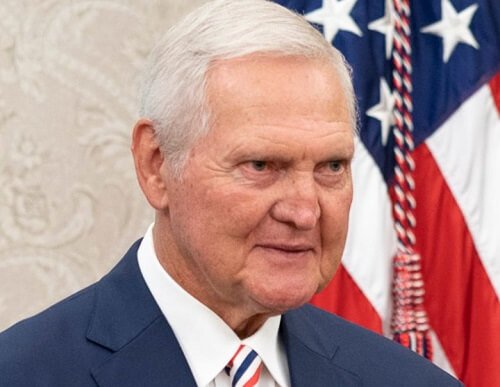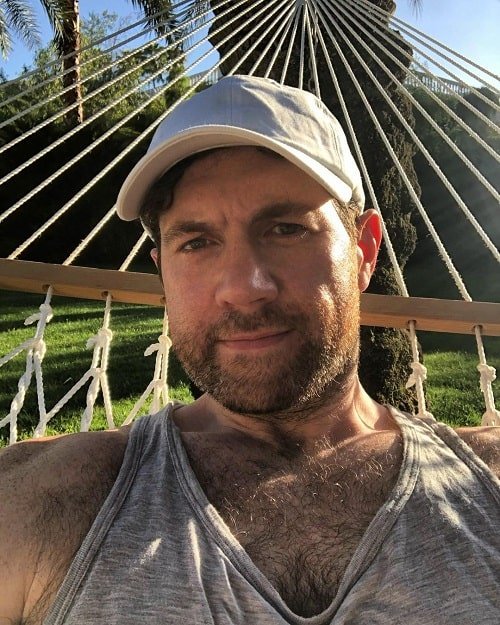Jerry West Biography and Life Story
In this article, here is the full details of Jerry West about wiki, biography, date of birth, birthplace, zodiac sign, nationality, hometown, age, height, weight, father, mother, family, girlfriend, wife, relationship status, children, profession, education, career, net worth, facts, Wikipedia, and many more.

Introduction: Jerry West is widely regarded as one of the greatest basketball players of all time. His career, which spans multiple decades, has not only solidified his place in basketball history but also earned him a legendary status among sports enthusiasts. Known for his incredible skill set, mental toughness, and exceptional basketball IQ, West’s career has transcended far beyond the basketball court. His influence continues to shape the game of basketball, not only as a former player but also in his roles as a coach and executive. This article will provide an in-depth look at Jerry West’s biography, highlighting his early life, rise to stardom, accomplishments, and legacy in the basketball world.
Early Life and Family Background
Jerry West was born on May 28, 1938, in Chelyan, West Virginia. He was the first of four children in his family. His father, Howard West, worked as a miner, while his mother, Cecil, was a homemaker. West grew up in a modest household, surrounded by the Appalachian mountains. The region, known for its coal mining and industrial economy, shaped much of West’s early life. He came from a working-class family, and his early environment was one that instilled a sense of resilience and determination in him.
West’s love for basketball began at an early age. He attended East Bank High School, where his tall, lean frame and athletic abilities made him stand out. West was an exceptional player, excelling in both basketball and baseball. However, it was basketball that would ultimately capture his heart and become his passion. His talent did not go unnoticed, and by the time he graduated from high school, he had already established himself as one of the best players in the state of West Virginia.
After high school, West enrolled at West Virginia University (WVU), where he continued to hone his skills under the guidance of legendary coach Fred Schaus. His time at WVU was a turning point in his basketball career, and he became a standout player in the NCAA. During his college career, West gained national attention for his exceptional scoring ability, ball-handling skills, and his ability to perform under pressure. His accolades in college included being named an All-American multiple times, and he led WVU to the 1960 NCAA Championship Game, where they faced off against the University of California. Although the team lost, West’s performance in the tournament was a clear indicator of his future greatness in the sport.
Entry Into the NBA: The Los Angeles Lakers Era
In 1960, Jerry West’s basketball journey took its next significant step when he was drafted by the Los Angeles Lakers in the first round of the NBA Draft. The Lakers, who had just moved from Minneapolis to Los Angeles, were in the midst of an era of growth and change. West’s arrival in the NBA marked the beginning of a highly successful, yet often tumultuous, career.
West made an immediate impact in his rookie season. He was named the NBA Rookie of the Year in 1961, quickly showcasing his scoring abilities, ball-handling, and leadership on the court. The combination of his precise shooting, intelligent playmaking, and overall basketball IQ made him one of the league’s brightest stars early in his career. West’s arrival came at a time when the Lakers were in the midst of competing for championships, but they were often falling short, particularly in the NBA Finals.
The Rivalries and Triumphs of Jerry West’s Playing Career
One of the defining aspects of Jerry West’s playing career was his competitive nature and the intense rivalries he engaged in, particularly with players like Wilt Chamberlain, Bill Russell, and Oscar Robertson. The rivalry between the Lakers and the Boston Celtics, in particular, was one of the most enduring in NBA history. West and the Lakers found themselves in a series of intense Finals matchups with the Celtics, with the latter dominating much of the 1960s.
Although West’s Lakers often came close, they were consistently outmatched by the Celtics, who were led by the legendary Bill Russell. The Lakers and Celtics met in the NBA Finals a total of six times during the 1960s, with Boston winning five of those matchups. Despite the losses, West’s performance in these Finals cemented his reputation as one of the best players in the league. He was known for his clutch shooting and ability to perform under pressure, and he became synonymous with what would later be called “The NBA Finals Most Valuable Player” award, even before it officially existed.
In 1969, West finally achieved individual recognition when he was named the NBA Finals MVP despite his Lakers losing the championship to the Celtics. His incredible individual performance during that series left no doubt about his greatness, and it solidified his place in basketball lore. He finished his playing career with numerous accolades, including 14 NBA All-Star selections, 12 All-NBA Team selections, and the 1969 NBA Finals MVP.
The Impact of Jerry West’s Playing Style
Jerry West’s playing style was one of the most influential aspects of his career. Known for his scoring ability, West was a dynamic player who could do it all on the court. He was an outstanding ball handler, able to create plays for his teammates and himself. His footwork and ability to drive to the basket were exemplary, and he could score from almost anywhere on the court, whether it was a mid-range jumper, a fast-break layup, or a deep three-pointer (though three-pointers were not in vogue during his playing days). West’s jump shot became a signature move and is considered one of the best in the history of basketball.
Aside from his offensive prowess, West was also an excellent defender. He was named to the NBA All-Defensive First Team multiple times, and his ability to guard opposing players and disrupt offenses was a key part of his game. His competitive nature on both ends of the floor made him a well-rounded player and a nightmare for opponents.
Perhaps the most iconic aspect of Jerry West’s legacy is the fact that he served as the inspiration for the NBA logo. The image of West dribbling the basketball was used as the silhouette for the official NBA logo, a lasting tribute to his impact on the sport. To this day, the logo is one of the most recognizable symbols in the world of sports, and West’s connection to it is a testament to the lasting influence he has had on the game.
Coaching Career and Executive Roles
After retiring from playing in 1974, Jerry West transitioned into various roles within the NBA, starting with coaching. In 1976, he took over as the head coach of the Los Angeles Lakers, where he led the team for three seasons. Although his time as a coach was relatively short-lived, West’s leadership and basketball knowledge were invaluable during his tenure.
Following his stint as a coach, West shifted his focus to the front office, where he found even more success. He became the Lakers’ General Manager in 1982, a role that would prove to be highly influential. Under West’s guidance, the Lakers experienced their most successful period in franchise history, with the team winning five NBA championships during the 1980s. West played a crucial role in assembling the team’s roster, including making the pivotal trade to acquire Kareem Abdul-Jabbar and drafting Magic Johnson, two moves that would define the Lakers’ dominance in the 1980s.
West’s keen eye for talent helped him construct teams that were not only successful but also entertaining to watch. The Lakers’ “Showtime” era, characterized by fast breaks and up-tempo play, was a direct result of West’s ability to put together the right pieces. He also played a crucial role in developing the Lakers’ culture, which helped them become one of the most iconic franchises in sports history.
In 2002, West left the Lakers and became the President of Basketball Operations for the Memphis Grizzlies, where he continued to build championship-caliber teams. His expertise in drafting and trading players, as well as his deep understanding of the game, allowed him to make significant contributions to the success of the Grizzlies.
Jerry West’s Legacy and Influence
Jerry West’s legacy as a player, coach, and executive is one that has profoundly impacted the game of basketball. He was one of the first true “superstars” of the NBA, paving the way for future generations of players. His playing style has influenced countless players, and his contributions to the sport extend far beyond his individual accolades.
As an executive, West’s ability to spot talent and build winning teams helped establish him as one of the most successful general managers in NBA history. He played a key role in building championship-contending teams and was instrumental in shaping the modern NBA.
Beyond his basketball accomplishments, West is also admired for his integrity, professionalism, and love for the game. He is widely respected among players, coaches, and executives, and his influence continues to be felt in the NBA to this day.
Conclusion: A Legend in the Game
Jerry West’s journey from a young boy in Chelyan, West Virginia, to an NBA superstar and respected executive is a testament to his hard work, talent, and love for the game of basketball. He has made indelible contributions to the sport, both on and off the court. As a player, he set the standard for excellence, and as an executive, he continued to influence the league’s landscape. Jerry West’s name will forever be associated with greatness, and his legacy is cemented as one of the most important figures in the history of basketball.
West’s impact on the NBA is immeasurable. Whether as the player who inspired the league’s logo or as the mastermind behind multiple championship-winning teams, Jerry West’s life story continues to be a source of inspiration for basketball players and fans around the world.
Stay connected with the wikimavani to know more about other trending personalities the wiki, biography, date of birth, birthplace, zodiac sign, nationality, hometown, age, height, weight, father, mother, family, boyfriend, husband, girlfriend, wife, relationship status, children, profession, education, career, net worth, facts, Wikipedia, and many more.





